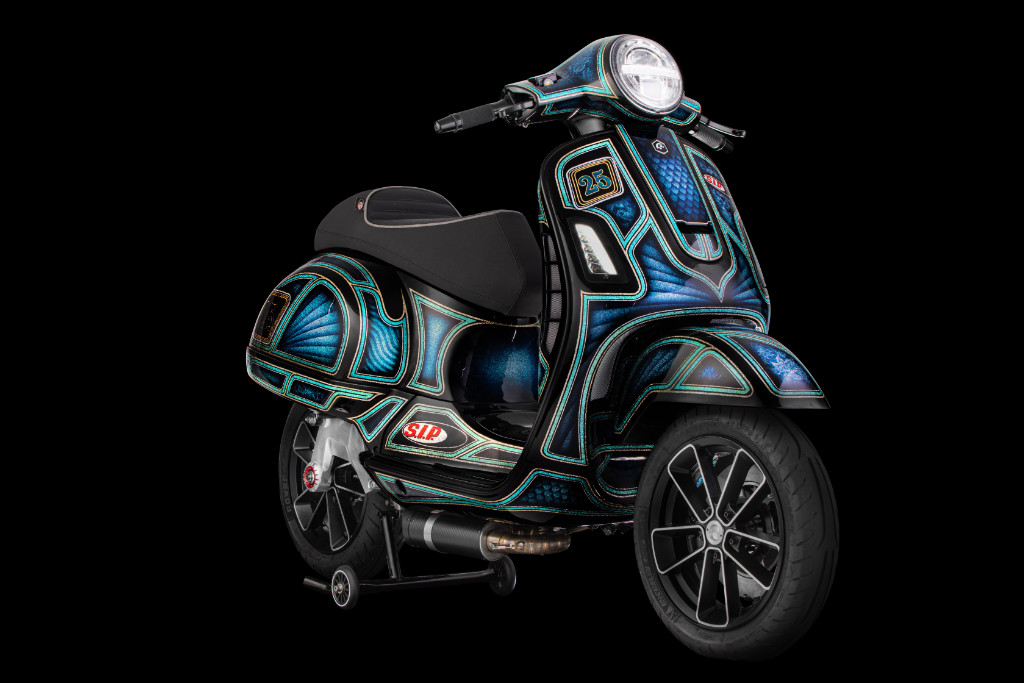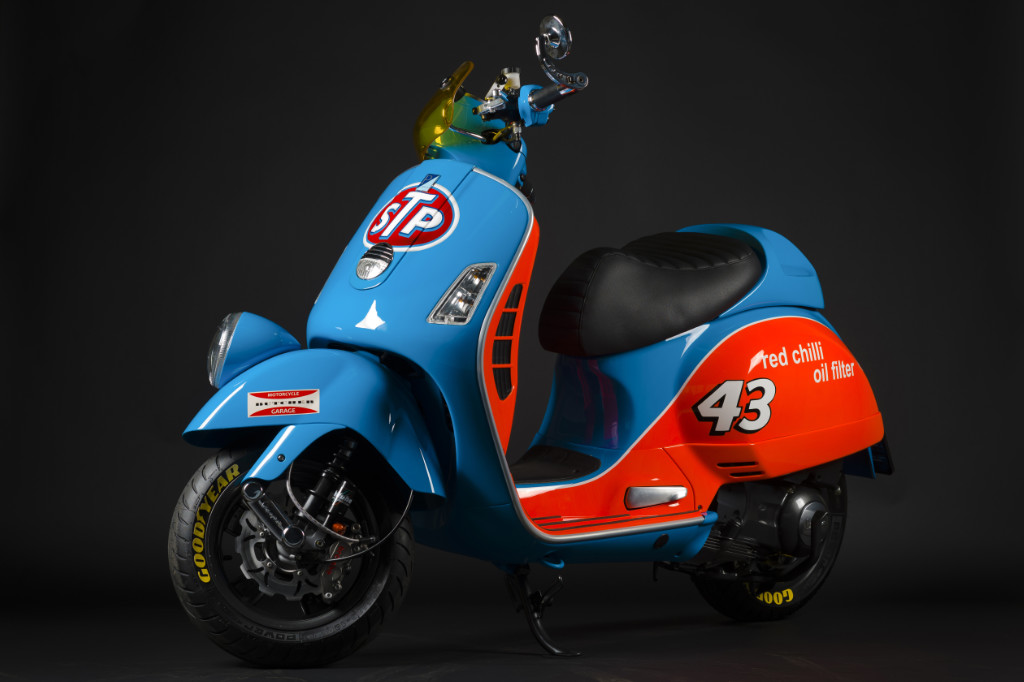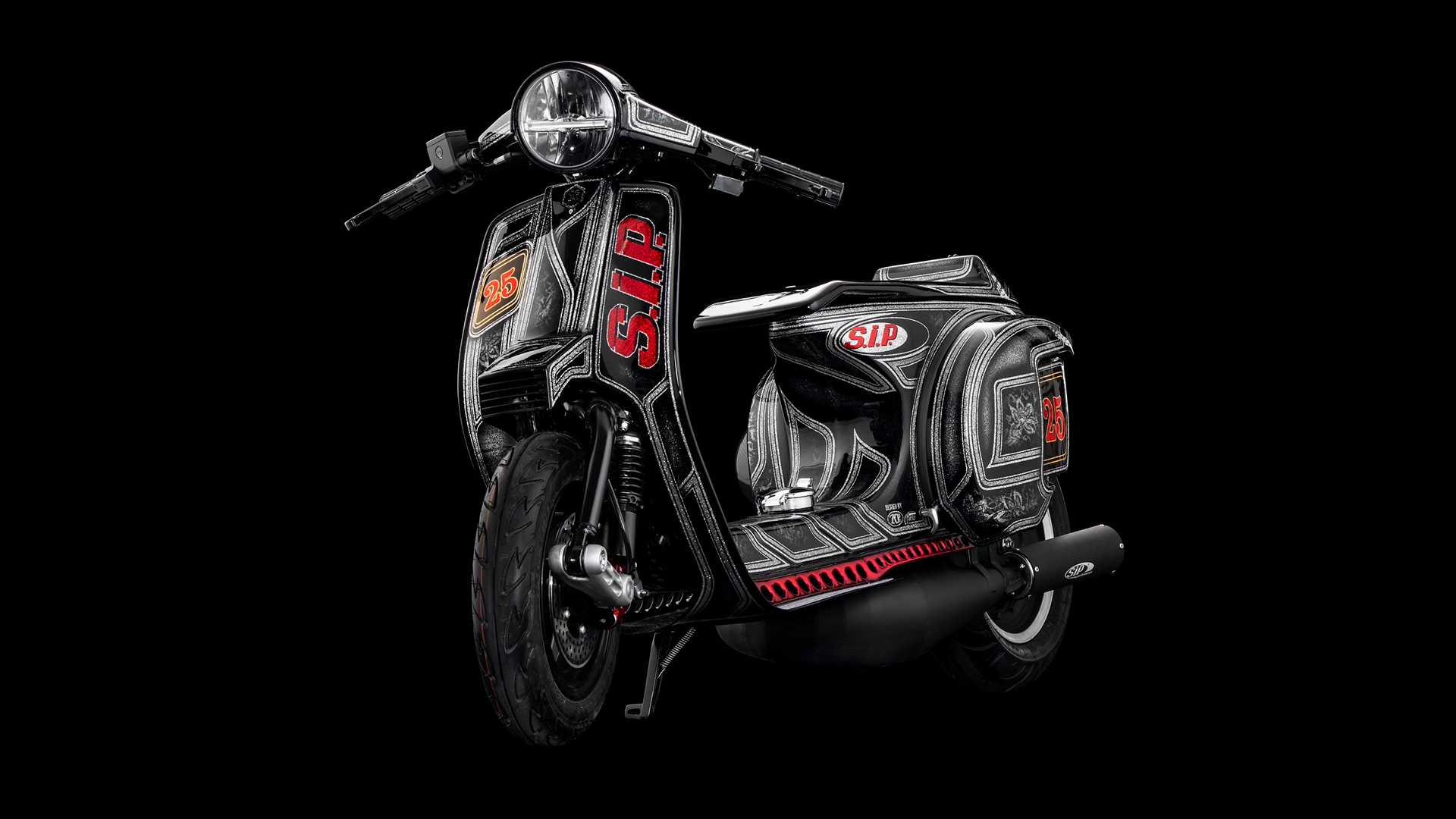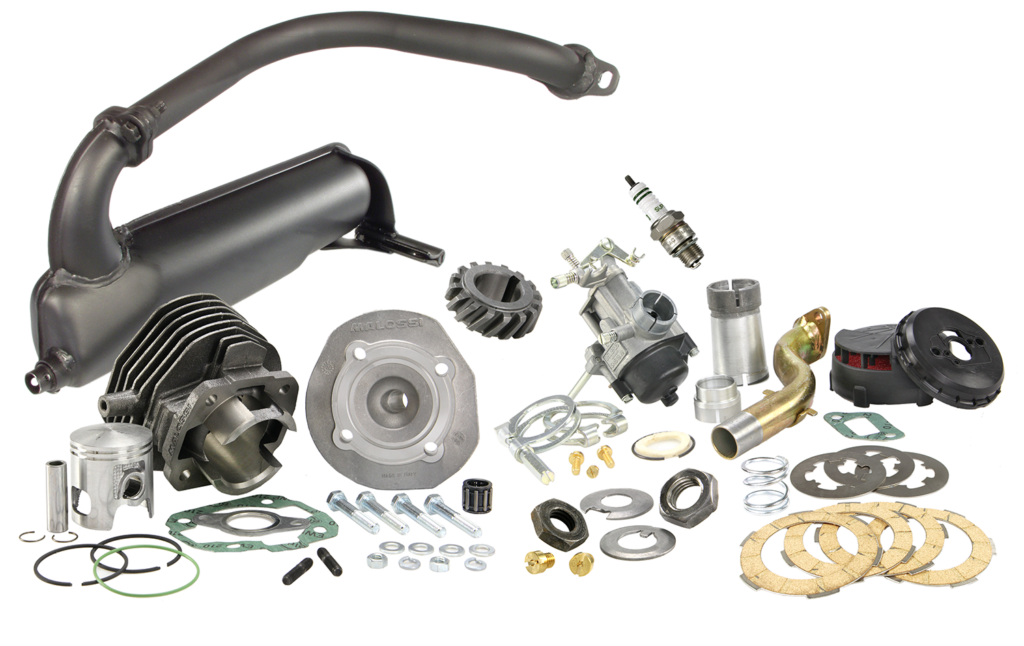Relaxing in the evening city traffic without being an obstacle for other road users – for many riders of a small-frame Vespa or a Vespa with 50ccm, this is probably wishful thinking. The maximum design speed is between 40 and 50 kilometres per hour, depending on the model series. In terms of top speed, this would probably still be sufficient, but in terms of acceleration behaviour, a Vespa is an obstacle at many junctions and traffic lights.
Tuning as a way to improve performance
Basically, it must be said at the outset that tuning is not just a form of increasing speed or acceleration. The term tuning, which comes from the English and means tuning or adjusting, also covers a number of other areas. For example, optical tuning, tuning of the chassis or lighting.
Plug & Play Tuning
In many cases, however, the lack of performance is the decisive factor for tuning measures. A rough distinction is made between so-called “plug & play tuning” and “custom tuning”. With the former, as the name suggests, a part is installed that fits on the Vespa without any modifications. A typical example is the conversion to a larger cylinder and piston. In many cases, this fits on the engine block without modification and brings more revs and acceleration without adjustments. Such measures can be supplemented by a tuning or sports exhaust, a larger carburettor or a modified gear ratio.
Tuning the exhaust
With a sport exhaust it is often the case that this has a corresponding ABE (General Operating Permit). This means that the exhaust can be driven on certain scooters without a corresponding registration. The ABE must always be carried along in order to be able to prove the permissibility in the event of an inspection. If there is no ABE for the desired exhaust, there must always be a registration at the TÜV for legal use. The Vespa exhaust tuning is therefore already somewhat more limited in the legal space.
Vespa Tuning Kit
In the online store of SIP Scootershop there are already ready tuning kits for easy tuning fun. Among other things, there are also special tuning kits with TÜV, for the extra safe conversion action. There, sets put together by professionals are offered, which contain a suitable parts certificate for the various add-on parts. This means that the parts can be entered in the papers without additional measurements and examinations by the TÜV inspector.
Custom tuning
A much more complex form of tuning is custom tuning. Here, the parts are assembled and adapted according to your own preferences or ideas. The field for possible performance increases is almost limitless. From adjusting the timing and intake times to adapting the crankshaft or custom-made exhausts. In addition to the countless technical possibilities, there are also virtually no limits in financial terms. Therefore, beginners should either seek professional advice or have their Vespa tuned by an expert workshop.


Legal basis for tuning
The relevant legal basis for tuning in Germany is the Road Traffic Licensing Regulations (StVZO). More precisely, §22a of the StVZO stipulates that certain equipment on the vehicle may only be used in an officially approved design.
Reference has already been made above to the possibility of an existing ABE or parts certificate. After installation of a part with an official approval, this must be checked and inspected by an expert. Parts with an ABE or a so-called EC type approval may basically be used in road traffic without registration. A parts certificate, on the other hand, does not entitle the owner to move the mounted part in the area of the StVO. In this case, the vehicle must always be registered by an engineer from a recognised institution such as TÜV-Süd or DEKRA.
In the case of unauthorised tuning, the Vespa’s operating licence expires immediately. This will result in heavy fines in all cases.
Tuning of bodywork or chassis
Everything that has been said so far also applies to the add-on parts that do not relate to the engine. Even if at first glance a new LED indicator or a new shock absorber does not have a major impact, without the corresponding ABE or EC type approval, the operating permit expires here as well.
In the case of light sources such as turn signals or headlights, the E-mark of conformity must be observed. If this is available, the lighting can be installed without hesitation.
The experts at SIP-Scootershop are also available to answer questions in these cases. In the shop, the extent to which an approval or operating permit is available is also already noted for the majority of the tuning articles offered. On the contrary, it is also explicitly noted if an item is not approved in the area of the StVO.
In conclusion, it is very clear that tuning is much more than just performance enhancement. Nowadays, road safety has a significantly higher priority than when the first Vespas rolled off the production line. Therefore, tuning with legal means is a simple and appropriate way to meet modern requirements with the Vespas. With the right and legal tuning, riding a Vespa is a real pleasure for yourself and other road users.
By the way: Insight into certain Vespa tunings by professionals can be seen here under projects.
Overall about tuning
Can and may you tune a Vespa?
Yes, you are generally allowed to tune a Vespa as long as it is within the law. The relevant legal basis for tuning in Germany is the Road Traffic Licensing Regulations (StVZO). More precisely, §22a of the StVZO states that certain equipment on the vehicle may only be used in an officially approved design. In case of an unauthorized tuning, the operating license of the Vespa expires immediately.
How to make a Vespa faster?
One possibility is to unthrottle the Vespa. This involves removing the spacer ring between the variator and the belt pulley in order to change the distance between the variator and the V-belt. This makes the Vespa go faster.
What are the penalties for illegal tuning?
The fine catalog has different classifications of fines for different changes. Increased noise or exhaust pollution costs 10 euros in fines. Driving without a valid operating permit is punishable by 50 euros. In addition, the operating permit expires if drivers do not have the modifications registered.





Comments (1)